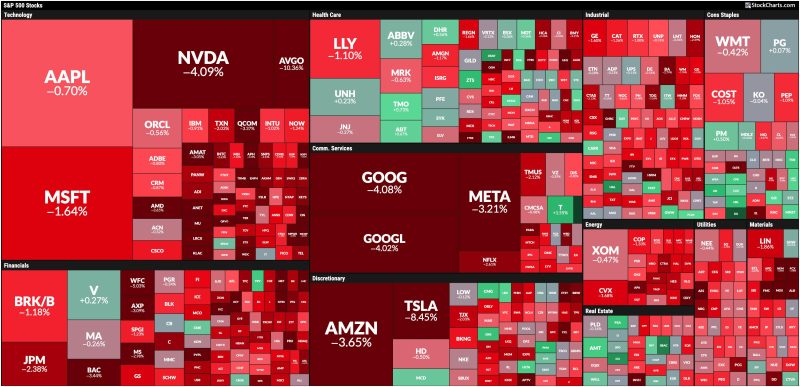Broad-Based Stock Market Selloff: How to Position Your Portfolio
Market selloffs are a common occurrence in the unpredictable world of investing. The recent broad-based stock market selloff has left many investors feeling uneasy and uncertain about the future performance of their portfolios. As an investor, knowing how to position your portfolio during these turbulent times can help you weather the storm and potentially come out stronger on the other side.
Diversification is Key
One of the most important strategies to consider during a stock market selloff is diversification. Diversifying your portfolio across different asset classes, industries, and geographical regions can help reduce risk and protect your investments in times of market volatility. By spreading your investments across a range of assets, you can mitigate the impact of a downturn in any single sector or market.
Reassess Your Risk Tolerance
During a broad-based selloff, it’s crucial to reassess your risk tolerance and investment goals. Market downturns can test even the most seasoned investors’ resolve, so it’s important to evaluate whether your current portfolio aligns with your risk tolerance. Consider reallocating assets to more conservative investments if necessary to help manage risk during turbulent market conditions.
Focus on Quality and Value
In times of market uncertainty, focusing on quality and value investments can be a wise strategy. Look for companies with strong fundamentals, sustainable business models, and attractive valuations. High-quality companies tend to be more resilient during market selloffs and may offer better long-term growth potential. Investing in undervalued stocks can also create opportunities for capital appreciation when markets eventually recover.
Stay Informed and Stay Calm
Amidst a stock market selloff, it’s essential to stay informed and avoid making hasty decisions based on emotional reactions. Instead of panicking and selling off investments at a loss, take a step back, assess the situation rationally, and consider the long-term implications for your portfolio. Keeping a cool head during turbulent market conditions can help you make more informed decisions and avoid knee-jerk reactions that may harm your investment outcomes.
Consider Long-Term Goals
Finally, keep your long-term investment goals in mind during a stock market selloff. While market downturns can be unsettling, they are often temporary in nature. By focusing on your long-term objectives and maintaining a disciplined investment approach, you can ride out the volatility and potentially benefit from market recoveries over time. Remember that investing is a marathon, not a sprint, and staying committed to your financial goals can help you navigate through challenging market environments.
In conclusion, a broad-based stock market selloff can be a trying time for investors, but it also presents opportunities for strategic positioning and portfolio adjustments. By diversifying your investments, reassessing your risk tolerance, focusing on quality and value, staying informed, and keeping your long-term goals in sight, you can navigate through market turbulence with greater confidence and resilience. Remember that market downturns are a natural part of investing, and with the right approach, you can emerge stronger on the other side.


































